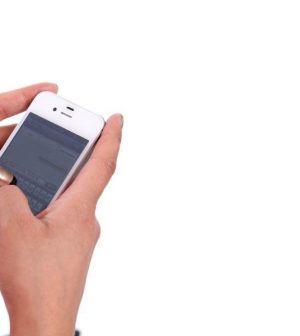- Could Artificial Sweeteners Be Aging the Brain Faster?
- Techniques for Soothing Your Nervous System
- Does the Water in Your House Smell Funny? Here’s Why
- Can a Daily Dose of Apple Cider Vinegar Actually Aid Weight Loss?
- 6 Health Beverages That Can Actually Spike Your Blood Sugar
- Treatment Options for Social Anxiety Disorder
- Understanding the Connection Between Anxiety and Depression
- How Daily Prunes Can Influence Cholesterol and Inflammation
- When to Take B12 for Better Absorption and Energy
- Epsom Salts: Health Benefits and Uses
Want Respect at Work? Ditch the Emojis

They’re cute and expressive, but using lots of emojis in your communications at work could lower your standing among your colleagues, a new study suggests.
The researchers conducted a series of experiments with hundreds of Americans and found that employees who use pictures and emojis in emails, Zoom profiles, or even company logos on T-shirts are perceived as less powerful than those who stick to using words only.
“Today, we are all accustomed to communicating with pictures, and the social networks make it both easy and fun. Our findings, however, raise a red flag: In some situations, especially in a work or business environment, this practice may be costly, because it signals low power,” wrote study authors Elinor Amit and Shai Danziger, of Tel Aviv University, Israel, and Pamela Smith, of the University of California, San Diego.
“Our advice: Think twice before sending a picture or emoji to people in your organization, or in any other context in which you wish to be perceived as powerful,” the study authors added.
Best to save the smiley faces and other popular images for friends and family.
In one experiment, participants were asked to imagine going to a company retreat. Half were told that an employee wore a T-shirt with the company’s name written on it, while the other half were told the worker wore a picture logo.
The respondents attributed more power to the employee who wore the T-shirt with the written logo.
In another experiment, participants were asked to choose one of two co-participants to represent them in a competitive game that suited people with high social power.
They were told that one co-participant represented themselves with a pictorial profile, while the other represented themselves with a written profile. The co-participant with the written profile was chosen by 62% of the participants to represent them.
The study was published in the March issue of the journal Organizational Behavior and Human Decision Processes.
“Why do pictures signal that a sender is low power? Research shows that visual messages are often interpreted as a signal for desire for social proximity. A separate body of research shows that less powerful people desire social proximity more than powerful people do. Consequently, signaling that you’d like social proximity by using pictures is essentially signaling you’re less powerful,” Amit said in a Tel Aviv University news release.
“It must be noted that such signaling is usually irrelevant in close relationships, as in communications between family members,” Amit continued. “However, in many arenas of our lives, especially at work or in business, power relations prevail, and we should be aware of the impression our messages make on their recipients. Our findings raise a red flag: When you want to signal power, think twice before sending an emoji or a picture.”
More information
HelpGuide.org offers work and career resources.
SOURCE: Tel Aviv University, news release, March 2022
Source: HealthDay
Copyright © 2026 HealthDay. All rights reserved.










